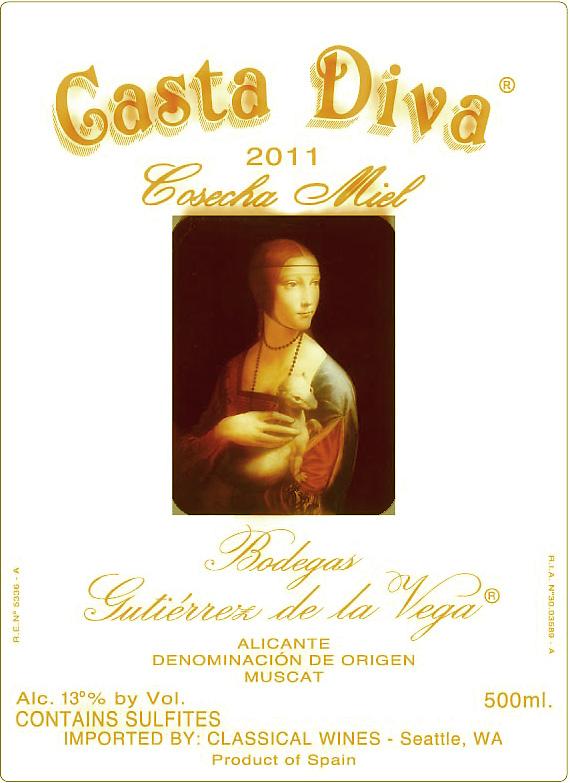2011 Alicante Muscat
Casta Diva Cosecha Miel is a remarkable white wine from the picturesque Alicante region, showcasing the enchanting Muscat varietal. This vintage, known for its delightful sweetness, radiates a golden hue that hints at its luscious character. The wine embodies a full-bodied profile, making it incredibly satisfying on the palate, while its bright acidity provides a refreshing balance that lifts its rich flavors. The fruit intensity is prominent, presenting a symphony of ripe stone fruits and floral notes that dance harmoniously together. With a stunningly pronounced sweetness, this well-structured wine offers a delightful tasting experience that can elevate any moment. Whether enjoyed alongside dessert or savored on its own, Casta Diva Cosecha Miel is a true testament to the art of winemaking in Alicante, perfect for those who appreciate a sweet yet sophisticated sip.
Casta Diva Cosecha Miel is a remarkable white wine from the picturesque Alicante region, showcasing the enchanting Muscat varietal. This vintage, known for its delightful sweetness, radiates a golden hue that hints at its luscious character. The wine embodies a full-bodied profile, making it incredibly satisfying on the palate, while its bright acidity provides a refreshing balance that lifts its rich flavors. The fruit intensity is prominent, presenting a symphony of ripe stone fruits and floral notes that dance harmoniously together. With a stunningly pronounced sweetness, this well-structured wine offers a delightful tasting experience that can elevate any moment. Whether enjoyed alongside dessert or savored on its own, Casta Diva Cosecha Miel is a true testament to the art of winemaking in Alicante, perfect for those who appreciate a sweet yet sophisticated sip.





